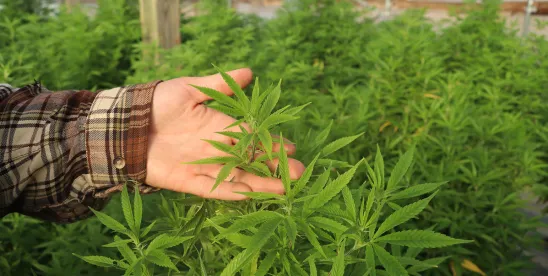Most of the annual state legislative sessions have ended or are nearing an end, and it would be an understatement to say that the hemp industry has ever experienced a more widespread and seemingly coordinated effort to roll back consumable hemp programs. In some states, those reforms were dramatic. Others, substantial but not existential. Add to that the fact that Congress will eventually address hemp’s federal legal status in the next Farm Bill, and it is certainly understandable if hemp stakeholders believe they and their futures are on unsteady ground.
No man is an island,
Entire of itself;
Every man is a piece of the continent,
A part of the main.
The cannabis industry as a whole – and that includes marijuana, industrial hemp, and consumable hemp, just to name the most popular varietals – is in vulnerable position. Although it may appear so in retrospect, progress is rarely linear. Of course, growing a new industry always has certain fits and starts that can make it feel like a slog, but the cannabis industry has generally been successful in pushing the stone up the hill over the last two decades. But on the heels of that success, progress is looking less certain than it has in years.
A cornerstone of cannabis the industry and a fundamental tenet that has led to billions in investments is that things will continue to get better. Hope — a dangerous thing or the best of things? Are we sure about that fundamental tenet now?
The problems are numerous, and they are coming from inside and outside the industry. From outside, there is a sizeable portion of Americans who simply do not want cannabis products in the marketplace. While our readers probably disagree with this position, I recognize it to be at least honest opposition to a core philosophy. And Big Alcohol and Tobacco have reasons to keep out competition in the space. But it’s from inside the industry that may come the most insidious threat to its growth.
If a clod be washed away by the sea,
Europe is the less,
As well as if a promontory were:
As well as if a manor of thy friend’s
Or of thine own were.
In the end though, I believe infighting between marijuana and hemp operators is slowly diminishing the legitimacy of the plant rather than fighting for its growth in an equitable system.
I represent marijuana companies, consumable hemp companies, industrial hemp companies, and countless companies that aren’t in the cannabis space but seek counsel on how to live and work in a world where cannabis exists but their government hasn’t provided sufficient assurances for how to address cannabis issues.
I’m not picking sides here or arguing that hemp and marijuana operators should get along while both sides get a raw deal. If you’re a marijuana operator who thinks it’s bogus that someone can sell a product that – to the consumer – appears identical but without the punishing regulation, taxation, and expense, I agree with you. If you’re a hemp operator who believes they could sell their product in a competitive market if they could just escape the fog of the current federal and state regulatory landscape, I agree you should have the chance to compete with regulated marijuana.
Any man’s death diminishes me,
Because I am involved in mankind.
Texas has almost 10% of the country’s population and just banned consumable hemp. And to what end? To bolster Texas’ anemic medical cannabis program? Nope, still in the doldrums. Alabama just substantially limited its consumable hemp program while its medical program remains trapped in a protracted court battle. Tennessee just limited its hemp program, and it doesn’t even have a medical program. California? Don’t get me started.
Although I understand that many who have been in the marijuana business for two decades may feel differently, I believe we are in the equivalent of the stone ages when it comes to unlocking the potential of the cannabis plant. If we take off the shackles of overregulation and punitive tax policies that cut off the lifeblood of growth, we can have something at least approaching a fair market where companies can compete on a level playing field.
John Donne finishes his masterpiece with the following line that gives me chills every time I read it or hear it spoken:
Therefore, send not to know
For whom the bell tolls,
It tolls for thee.
Is this a warning? A prediction? Perhaps. But maybe it’s meant to motivate, to galvanize, and to encourage cooperation and a shared effort towards a common goal. I’d like to think that.
Conclusion
In the cannabis world, as in life, no man is an island. None of us will stand if we cause others to fall for reasons of shortsightedness, greed, or pettiness. For if we choose those paths, we will not need to ask for whom the bell tolls. But if we choose the greater course, where cannabis operators lift each other up instead of pulling each other down, we all just might have a chance to hear the chorus of bells ringing in our collective success.
Thanks for stopping by.




 />i
/>i

